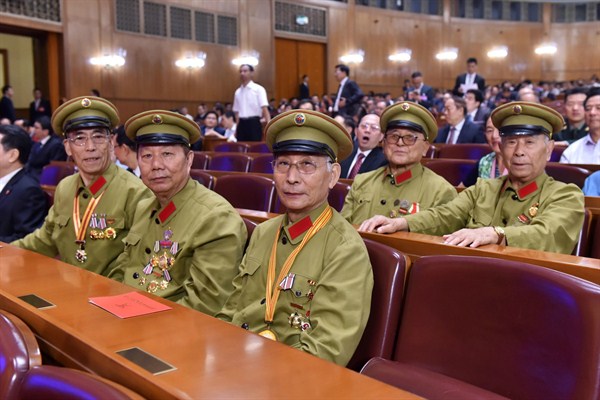In recent months, veterans of China’s armed forces have staged large-scale demonstrations to demand financial compensation and other benefits they say they have not been given. The government responded in March by creating a new Ministry for Veterans’ Affairs, but many veterans remain dissatisfied. While the demonstrations have so far not broadly threatened the Chinese Communist Party’s legitimacy, they pose a unique challenge to President Xi Jinping’s government. To learn more about the historical context and broader significance of the veterans’ protests, WPR spoke via email with Jieren Hu, an associate professor at Tongji University’s School of Law in Shanghai.
World Politics Review: What prompted the recent protests by People’s Liberation Army veterans, and how unusual are such demonstrations for veterans in China?
Jieren Hu: The large-scale and frequent demonstrations by veterans of the People’s Liberation Army, or PLA, stem from long-term problems with implementing policies related to veterans’ resettlement over the past three decades. Discontinuity and ambiguity in these policies have caused deep grievances among demobilized soldiers. There have been several periods of demobilization in China since the 1970s, and during each period, policies related to veterans’ financial compensation, employment status and housing allowance were totally different. This is because the policy during each period was oriented toward the state’s immediate political goals, as determined by the Chinese Communist Party, and did not consider factors of justice, dignity and fairness for different generations of veterans.

